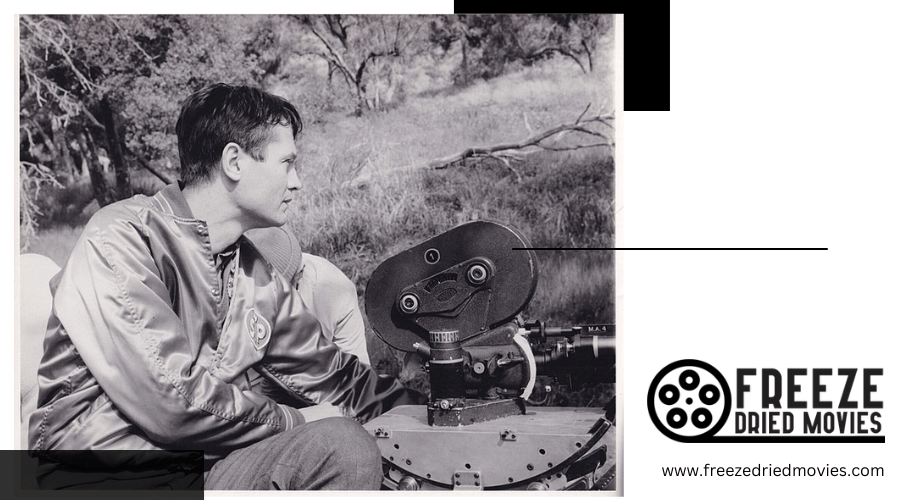Roger Corman is the mastermind behind some of the most iconic low-budget horror films in cinema history. With a knack for blending dark humor with engaging storytelling, Corman’s work, including classics like ‘Little Shop of Horrors,’ has not only entertained but also paved the way for filmmakers to explore the genre’s potential without breaking the bank. His ingenious methods and mentorship have inspired countless directors and actors, proving that creativity, not budget, is the key to captivating audiences. As we peel back the layers of his influence, you’ll discover just how deep Corman’s legacy runs in the veins of horror cinema.
Key Takeaways
- Roger Corman revolutionized low-budget horror with his efficient and innovative filmmaking methods.
- His films, like ‘Little Shop of Horrors’, blended dark humor with horror, creating memorable cinema on tight budgets.
- Corman’s ability to understand audience preferences allowed him to maximize the impact of his low-budget productions.
- The Corman Method emphasized resourcefulness, leveraging emerging trends to create quality content affordably.
- Through mentoring future Hollywood icons, Corman’s influence extended, fostering a new era of creative, budget-conscious filmmakers.
The Early Days
In the 1950s, Roger Corman began his filmmaking journey, quickly mastering the art of crafting high-impact entertainment on a tight budget. Corman’s early film, ‘The Fast and the Furious’ (1955), showcased his knack for creating compelling content with minimal resources, setting the stage for a career filled with inventive filmmaking. Among his many achievements, the film ‘Little Shop of Horrors’ stands out as a quintessential example of Corman’s ability to produce horror with heart and humor, even within the confines of low-budget production.
‘Little Shop of Horrors’ introduced audiences to the down-on-his-luck character Seymour Krelboin, played by Jonathan Haze, who discovers a peculiar plant with a taste for human blood in the dreary setting of Skid Row. Managed by the gruff yet charismatic flower shop owner, portrayed by actor Mel Welles, Seymour’s life spirals into chaos as the plant’s demands grow. This film not only solidified Corman’s status as a master of low-budget horror but also demonstrated his skill in weaving compelling narratives with unforgettable characters, proving that a movie’s impact isn’t solely dependent on its budget.
The Corman Method
How did Roger Corman turn limited budgets into cinematic masterpieces? Through the innovative and efficient Corman Method, blending resourcefulness with a sharp eye for audience trends. This unique approach revolutionized low-budget filmmaking, proving that you don’t need a colossal budget to create quality content. Corman’s knack for making the most out of every dollar, selecting visually impressive yet affordable locations, and his dedication to efficiency without sacrificing quality set a new standard in the industry.
The Corman Method isn’t just about cutting costs; it’s a tribute to Corman’s genius in recognizing what viewers want and delivering it on a shoestring budget. By spotlighting emerging trends and audience preferences, he ensured his films struck a chord with viewers, maximizing impact regardless of financial constraints. This method became Roger Corman’s signature, marrying innovation with resourcefulness to craft films that resonated deeply with audiences. It’s a clear message to aspiring filmmakers: with the right approach, limited resources can be your greatest asset, not a limitation. Through the Corman Method, the world of filmmaking learned that efficiency, innovation, and a keen understanding of audience desires are the keys to producing enthralling, high-quality movies on a modest budget.
Iconic Corman Productions
Roger Corman’s productions, such as ‘Little Shop of Horrors’ and ‘A Bucket of Blood,’ stand out for their unique blend of dark humor and distinctive storytelling, demonstrating his uncanny ability to create compelling cinema on a budget. These films not only showcase Corman’s knack for horror comedy but also his talent for making B Movie cult classics that resonate with audiences even today.
‘Little Shop of Horrors,’ with Jack Nicholson in an early role, became an instant hit, blending campy, satirical elements with the kind of engaging narrative that would inspire a beloved musical adaptation. This film exemplifies Corman’s skill in combining horror with humor, creating a memorable movie experience on a shoestring budget.
‘A Bucket of Blood’ takes you deeper into Corman’s world, exploring the dark side of the quest for artistic recognition through its story of a busboy turned serial killer artist. This film, produced at the iconic Chaplin Studios, further cements Corman’s legacy in the horror-comedy genre.
Through these iconic productions, Roger Corman not only defined a unique space within Hollywood but also proved that creativity, not budget, is the true driver of cinematic excellence.
Fostering Talent
Beyond his iconic productions, Corman’s legacy includes mentoring numerous budding talents who’d shape the future of Hollywood. You’ve probably heard of Roger Corman, the godfather of low-budget horror, but did you know he was also a nurturing mentor to some of the biggest names in the industry? His guidance and support have been instrumental in the rise of many emerging talents who went on to become Hollywood heavyweights. Corman’s unique ability to spot and foster potential in the unlikeliest of places has made him a revered figure among industry titans.
Here’s why Corman’s role as a mentor was so impactful:
- Personalized Guidance: He didn’t just give advice; he tailored his mentorship to suit the individual needs of each mentee.
- Opportunities to Shine: Corman provided budding talents with opportunities to lead projects, encouraging them to learn through experience.
- Endless Support: Even when the odds were against them, Corman’s unwavering support and belief in his proteges inspired them to push beyond their limits.
Through his commitment to nurturing the next generation, Roger Corman guaranteed that his legacy would extend far beyond his own contributions to low-budget horror.
Legacy and Influence
You’ll find Corman’s influence deeply embedded in the foundation of modern horror and beyond, thanks to his pioneering work and mentorship. His knack for spotting talent in the rough—like a young Jack Nicholson or a busboy named Walter Paisley—set the stage for a new era of filmmaking. In a small rental studio, Corman’s early films, including the iconic “Attack of the Crab,” showcased not just creatures and scares but potent social commentary, a hallmark of his work.
His stories, often brimming with metaphors and dark humor, like the man-eating plant in Chuck Griffith’s script, resonated with audiences and critics alike. Joe Dante, among others, credits Corman for paving the way with his innovative approaches and sheer audacity. The horror film landscape, enriched by Corman’s ingenuity, thrives on the principles he championed: creativity over budget, and substance over spectacle.
Corman’s legacy isn’t just in the horror genre but in the very fabric of cinema. His mentorship of figures like Martin Scorsese and James Cameron has perpetuated a lineage of filmmakers who continue to push boundaries, proving that with vision and tenacity, the possibilities are limitless.
Frequently Asked Questions
How Did Roger Corman Help Martin Scorsese Get Into Filmmaking?
Roger Corman played a pivotal role in Martin Scorsese’s career by letting him direct ‘Boxcar Bertha,’ his first feature film, in 1972. This opportunity showcased Scorsese’s talent and launched his successful filmmaking career.
Did Roger Corman Make Any Good Movies?
Roger Corman’s knack for crafting cult classics like ‘The Little Shop of Horrors’ and ‘A Bucket of Blood’ shows he’s made plenty of good movies that have stood the test of time.
Did Roger Corman Play a Crucial Role in Modernizing American Cinema?
Yes, you’ve hit the nail on the head. Roger Corman did play a pivotal role in modernizing American cinema. He revolutionized filmmaking with his efficient, low-budget techniques, paving the way for future industry giants.
What Is Roger Corman Famous For?
He’s celebrated for revolutionizing low-budget horror films in the 1950s, creating cult classics that still resonate today. His innovative filmmaking techniques have left a lasting impact on cinema.
Conclusion
Roger Corman’s journey in the horror genre has truly reshaped how we view low-budget filmmaking. His knack for blending dark humor with sharp social commentary, all while on a shoestring budget, is nothing short of legendary. Through iconic productions and fostering incredible talent, Corman’s legacy continues to inspire filmmakers to push boundaries and explore new horizons. He’s proven that with creativity and passion, the art of horror thrives, transcending the need for lavish budgets to make a lasting impact.

